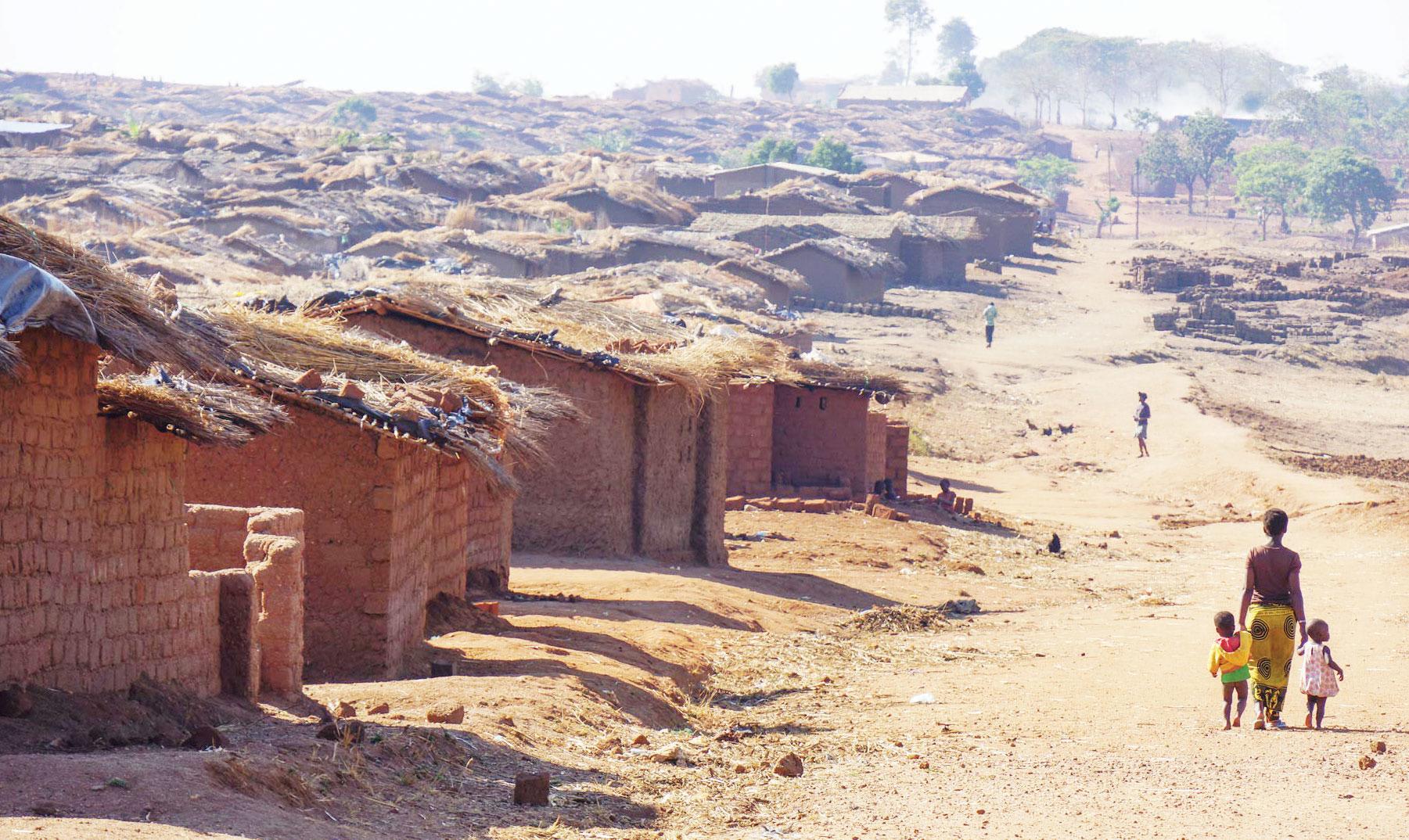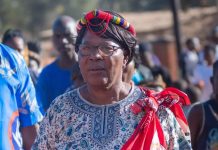Africa-Press – Malawi. Refugees are, like indigenous and naturalised Malawians, endowed with talents that would put them in a better position to contribute to Malawi’s socio-economic development endeavours. Ironically, they endure policy neglect which, as RICHARD CHIROMBO writes, could be costly to Malawi.
Thirteen months ago, when Kalu Institute’s Humanitarian Aid Studies Centre released findings of a study that indicated that refugees had potential to contribute to Malawi’s development, 52-year-old Idlin, originally from Burundi, was hopeful that policymakers in Malawi would take note and open doors for him. He hoped in vain for, months after the release of that September 22 2020 report, nothing has changed.
“I am a trained computer programmer and architect but Malawi’s policies do not permit me to contribute to its socio-economic development,” he said, adding: “The truth is that I take Malawi as my home, not second home, and would not hesitate to contribute to its development through my skills. I do not understand why people do not embrace me, us.”
True to his words, refugees continue to be regarded as people who have to be kept at arm’s length. Just this month, the Inspector-General of Police George Kainja and Public Accounts Committee (Pac) of Parliament members amplified that message when they suggested that plans to relocate Dzaleka Refugee Camp in Dowa District to Karonga or Chitipa districts be expedited.
Kainja said the camp must be close to the border so that immigrants that “do not meet the refugee status should be denied entry there and then” unlike sending them back when they are already in Malawi, which is expensive.
“Moving forward, I would like to agree with the suggestion that we need to abolish this camp [Dzaleka] because it is giving us problems,” Kainja said.
Pac Vice Chairperson Nedson Poya wondered why some people from countries where peace had been restored continued to enjoy refugee status in Malawi. “Let us look at Rwanda, where there was genocide; we have Rwandese in this country, yet their country is peaceful. Why not go back?” he queried.
This came barely three weeks after Secretary for Defence Kennedy Nkhoma, who is also the Commissioner for Refugees, told parliament’s Committee on Defence and Security that establishment of a refugee camp at Katiri in Karonga delayed due to land acquisition processes that were yet to be finalised. All this is happening despite the Kalu Institute report indicating that refugees were more beneficial than harmful to the economy of Malawi.
The report, which Richmond Elijah Mkopa Msowoya prepared and titled ‘The Impact of Refugees and Asylum Seekers in Contributing to The Local and National Economic Development Nexus. A Case Study of Dzaleka Camp in Malawi’, indicates that refugees and asylum seekers have a positive impact on development.
“…Refugees and asylum seekers were operating various business enterprises across the country dominating most of the local retail markets in many market points and paying various forms of taxes to Malawi Government. Business enterprises conducted had ripple effects to the local and national economies,” the report indicates.
Ironically, instead of putting in place favourable policies that promote entrepreneurship among refugees, no such policy has been created, creating a cycle of poverty among refugees.
This has prompted United Nations (UN) agencies such as World Food Programme (WFP) to warn that millions of refugees are on the verge of facing hunger as the effects of the pandemic on aid budgets play out in funding shortages for emergency operations.
To help address a problem, WFP Malawi rolled out a cash-based transfer programme and kick-started livelihood support activities to enhance self-reliance among refugees. However, funding shortfalls have led to a 25 percent ration cut since July 2020, according to UN High Commissioner for Refugees Filippo Grandi.
University of Livingstonia Public Policy Analyst [Faculty of Social Sciences] Simon Mkamanga indicates that the epitome of refugees and asylum seekers’ exclusion is Malawi 2063, the long-term development blueprint that has been touted as the panacea to Malawi’s socio-economic problems.
He observed that framers of Agenda 2063 left out refugees, deliberately or not, despite that they also engage in national development activities, albeit on a limited scale due to policy constraints.
Malawi 2063 revolves around three key pillars: Agricultural commercialisation and productivity; Industrialisation; and Urbanisation. The pillars have such enablers as mindset change, effective governance systems and institutions, enhanced public sector performance, private sector dynamism, human capital development, economic infrastructure and environmental sustainability.
“Refugees are substantially missing in the Malawi 2063. For starters, Malawi launched its development blueprint dubbed Malawi 2063 through which the nation aspires to become an Upper Middle Income Country by 2063.
“Let us now quickly look at the situation of refugees in Malawi. The majority of refugees (correctly designated as People of Concern, which includes refugees and asylum seekers) are youth. Because of the Malawi encampment policy, most of these refugees are in Dzaleka Camp in Dowa District. The camp is characterised by overpopulation, poor health and education services, poor diet, environmental degradation, squalor, insecurity, and lack of direction and purpose. At the moment, the refugee policy and practice in Malawi is chaotic,” he observed.
Malawi is a signatory to refugee instruments such as the Refugee Convention of 1951. However, according to the policy analyst, Malawi has failed to come up with favourable domestic refugee policies.
“Due to the reservations made to the Refugee Convention of 1951, Malawi refugee policies are characterised by fear, cowardice, intolerance, discrimination, violence and general suppression of refugee rights. It is no surprise therefore that the general Malawi populace responds accordingly towards refugees. Malawi is playing hide and seek on the Comprehensive Refugee Response Framework an international policy aimed at promoting and tapping refugee abilities. Furthermore, Malawi rarely naturalises refugees, even the ones who truly desire integration. Worse still, Malawi detains those in mixed migration, claiming illegal entry. In general, the majority of refugees in Malawi are stuck in an endless spiral of a purposeless life,” Mkamanga added.
All this is happening when the Ministry of Homeland Security warned refugees and asylum seekers that are engaged in business in various parts of the country to return to Dzaleka Refugee Camp, failing which they would be hunted down by law enforcers. They were saved by the courts.
For More News And Analysis About Malawi Follow Africa-Press






